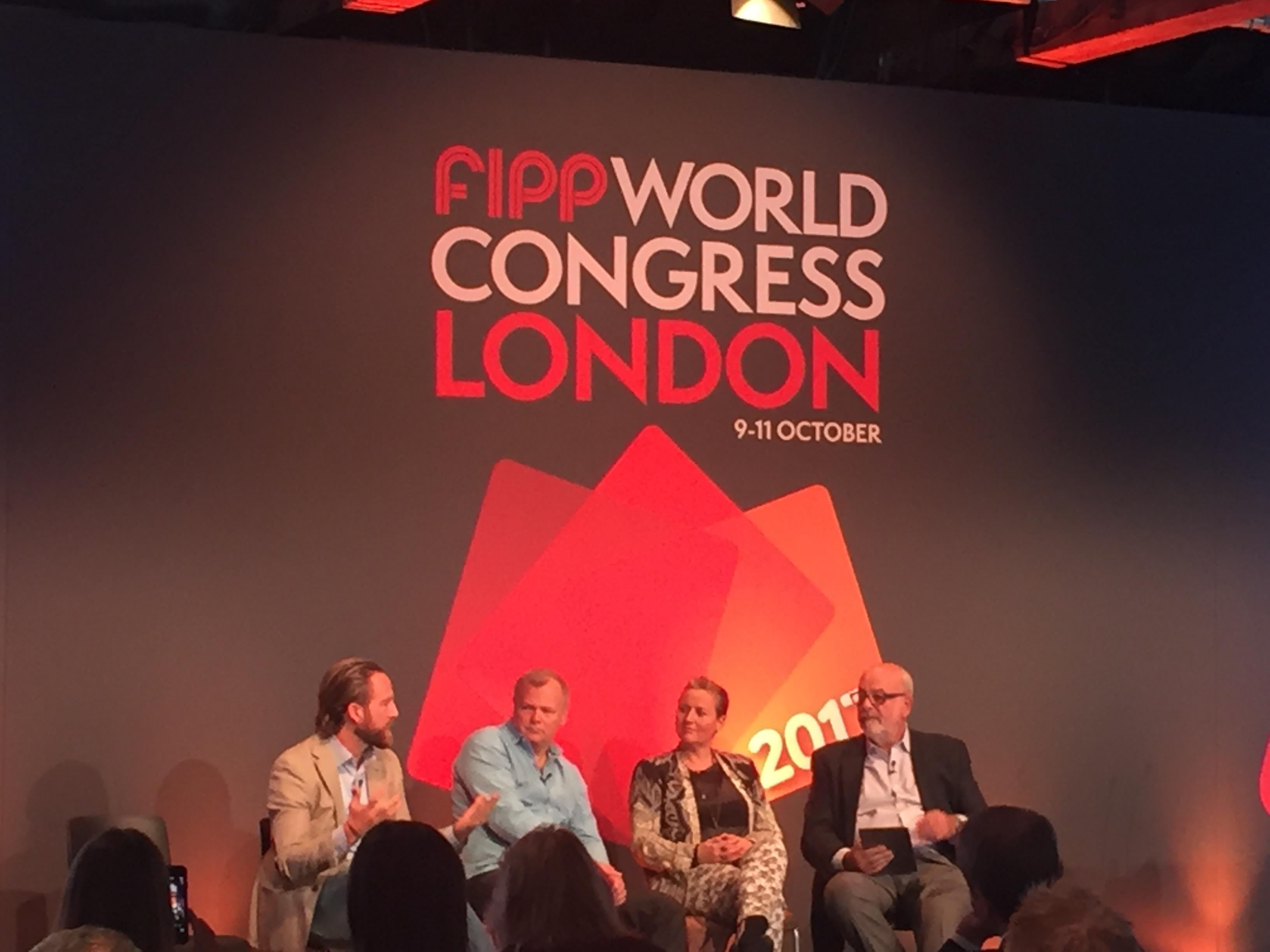Managing talent central to embracing a new publishing future

Interviewed by Peter Kreisky, chairman of the Kreisky Media Consultancy in the USA a panel of thought leaders featuring Philipp Schmidt, chief transformation officer and MD: Prisma Media Solutions at Prisma Media in France, Natasha Christie Miller, divisional CEO, Ascential in the UK and Tom Bureau, CEO, Immediate Media Co. in the UK shared some personal insights into their own organisations and offered guidance on how to build prosperous future publishing businesses.
They were part of a panel discussion on media transformation during the first day of the 41st FIPP World Congress being held in London.
Asked how important talent was for the continued transformation of publishing businesses, panellists agreed people strategy is pivotal, not only in driving more businesses but also to understand audiences and build successful corporate cultures.
Schmidt said at Prisma they realised early during their transformation process that if they wanted to change a corporate culture they needed to bring people on board who are willing to cooperate with new ideas. “Talent is a tricky thing because it is not easy to define. In the past it was defined by technical expertise and performance indicators. But it is also super important what kind of mindset you bring on board.”
He referenced the fact that when new talent left the company, it was usually because of behaviour, or a lack of the right behaviour for that matter. “If you say you need to change a culture, and not only a technology revolution, you need to bring people on board who are willing to cooperate more than ever.”
Modern incentive models are also vastly different from what was once employed at legacy publishers compared to what multi-platform modern media companies use today, he warned. “If you want to manage a media company with assets in digital and also in the offline world, it is very important to bring managers on board who are able to talk to Generation X and Generation Y… With X you can have a career talk once a year but Y needs a couple of likes once a day. How do you make this happen? You need to engage them personally, this in turn drives them to engage with your brands and your readers – so everything is connected.”
Christie Miller said with the right people you can achieve anything. One of Ascential’s biggest challenges is “to get different groups of people to work brilliantly together. It’s so easy to get groups of people with one single goal and one single focus aligned. But our products, our services, our customers needed to be more differentiated and nuanced than that. So getting two or three different types of people to work together is an exciting opportunity.”
Bureau said the concept of the ‘employer brand’ is really fascinating. “The biggest single thing is the people you employ.” He says at Immediate Media their workforce has become their biggest “recruiting sergeant”. To take advantage of this they have institutionalised the recruiting process to make sure that the skillsets that people have ensure that they are not only able to do the job but that they also bring competencies and behaviour to collaborate and bring the right energy into the business. That’s why it’s so important to also invest in recruitment processes and leadership training.
Print to digital
On the topic of transforming businesses from print to digital, panellists agreed that companies needed to refocus and will need to continue to do so.
Bureau said the agenda at Immediate Media over the past six years was to transform the business to a multi-platform digital first operation, while continuing to love print. In the process they managed to double the size of the business and double profitability with revenues growing from $100 million to just over $200 million. “We have a crazy print business that continues to grow. It is mainly based around subscriptions and special interests…”
According to Schmidt the answer to transformation within most media companies are “frantically” trying to do all things simultaneously. “As we have seen in most media companies we should be the mirror of society and the expectations of our consumers’ needs. But it is a demanding and challenging venture because most companies concentrate on all these trends they should perform and in the process they get lost in all these opportunities.”
How they did it differently at Prisma Media media was not to try and do everything at the same time and lose focus. “Sometimes it is easier to concentrate on what will never change instead of concentrating on what you should change.”
To do that, they decided to stick to certain core beliefs. In Prisma’s case these beliefs were to invest in:
people, “not technology because technology does not change a corporate culture”; clients, “because we need to anticipate consumer needs by interpreting client data resources”; and a culture of openness. “This is because we realised that we cannot do everything by ourselves. This opens up a new era of alliances (such as the recent establishment of Gravity, a collaboration between French media companies, advertising agencies and telcos to share consumer data).
Bureau warned that consumer media businesses should remain focussed on consumers and selling to consumers rather than being focussed on advertising. “There is a massive difference between (selling to consumers and advertising) cultures. If you are really focused on the deep relationship and ongoing permanent relationship with the consumer, you create a very different culture from selling advertising.”
At Immediate, said Bureau, they pivoted from being a business selling content through subscriptions to a business who now sells content and commerce, putting consumers in the middle of a transaction. “Content and commerce are two great complementary bedfellows. If you have a very strong relationship with your consumer, you have the permission to do more for them… We have really invested in the technology and the assets around transactions, e-commerce and marketplaces.”







